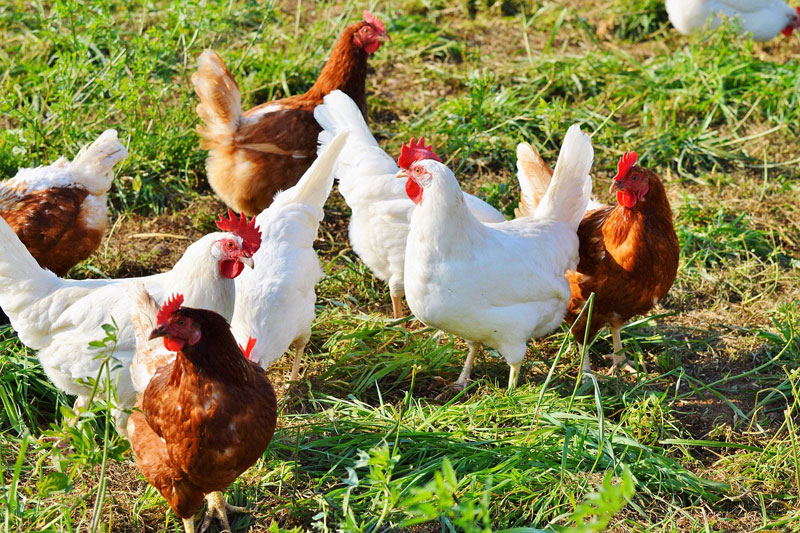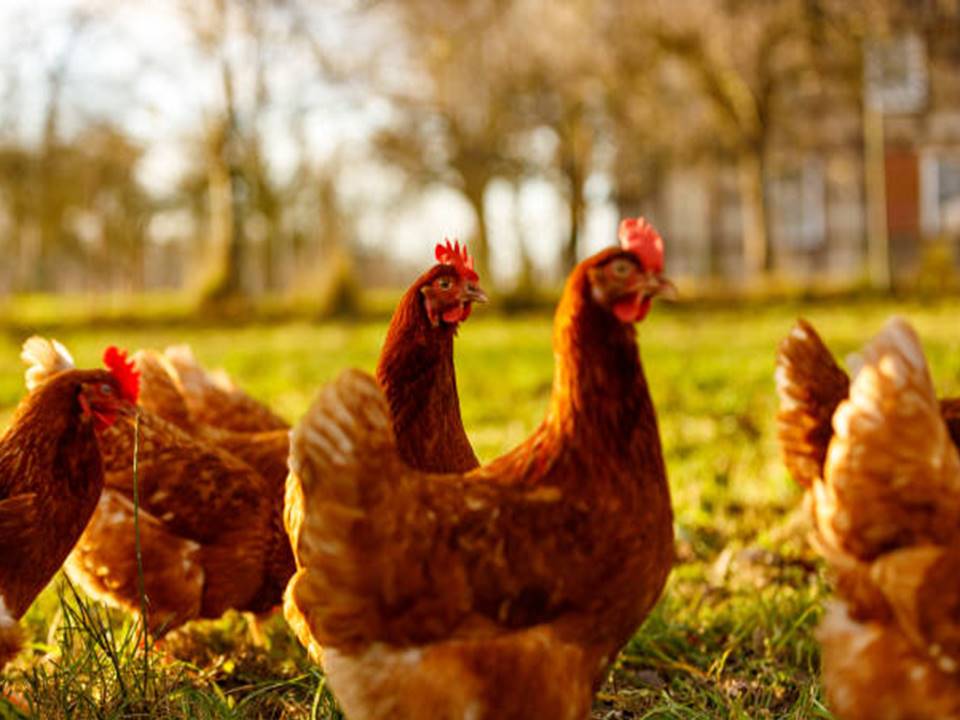Add a header to begin generating the table of contents
Prof Dr Husam H. Nafea of Iraq has deliberately explained the contribution of organic chicken meat to human health. He mentioned in his article “organic poultry farming is to provide meat and eggs that are free of harmful pollutants and have a high nutritional value. The nutritional and health value of organically produced chicken and eggs is higher than that of commercial chicken[i]”. It is a fact that in the world most consumed animal protein is chicken meat because of its cost effectiveness and availability. We can see the article here: https://www.uoanbar.edu.iq/AgricultureCollege/English/News_Details.php?ID=1175,
Presently this organic product has grown interest amongst the people for ensuring health benefits. In the non-organic farms various types of medicine and anti biotics are used to keep the birds in good health to protect them from various bacteria and weather. Organic chicken farming has gained significant popularity over the past few decades, driven by an increasing consumer preference for healthier, more natural food options. This method of farming, which emphasizes the use of natural processes and materials, not only benefits the environment but also has profound implications for human health. Let’s delve into how organic chicken farming contributes to our well-being and what recommendations experts suggest for consumers and producers alike.
Nutritional Benefits
One of the primary advantages of organic chicken farming is the superior nutritional profile of the meat and eggs produced. Studies have shown that organically raised chickens often have higher levels of essential nutrients compared to their conventionally raised counterparts. For instance, organic chicken meat tends to be richer in omega-3 fatty acids, which are crucial for heart health and brain function. Additionally, organic eggs have been found to contain higher levels of vitamins A, D, and E, as well as antioxidants like lutein and zeaxanthin, which are beneficial for eye health.
Lower Risk of Contaminants
Organic chicken farming strictly prohibits the use of synthetic pesticides, herbicides, and fertilizers. This significantly reduces the risk of chemical residues in the meat and eggs, making them safer for consumption. Moreover, organic farming standards ban the use of antibiotics and growth hormones, which are commonly used in conventional poultry farming. The absence of these substances is crucial because it helps prevent antibiotic resistance; a growing public health concern and eliminates potential hormone-related health issues in humans.
Reduced Exposure to Antibiotic-Resistant Bacteria
One of the alarming issues in conventional poultry farming is the widespread use of antibiotics to promote growth and prevent disease in crowded conditions. This practice has led to the emergence of antibiotic-resistant bacteria, which can be transferred to humans through the consumption of contaminated meat. Organic chicken farming, with its ban on routine antibiotic use, helps mitigate this risk. The healthier living conditions and better diet of organically raised chickens contribute to their overall health, reducing the need for antibiotics in the first place.
Ethical and Humane Treatment
The humane treatment of animals is another cornerstone of organic chicken farming. Organic standards require that chickens have access to outdoor spaces, fresh air, and sunlight, as well as sufficient space to move around freely. These conditions not only improve the welfare of the chickens but also result in healthier, stress-free animals. Stress in animals can lead to the release of stress hormones, which can negatively affect the quality of the meat. By ensuring that chickens are raised in a more natural and less stressful environment, organic farming contributes to producing healthier and more wholesome meat.
Environmental Health and Sustainability
The health of our environment is intrinsically linked to human health. Organic chicken farming practices are designed to be sustainable and environmentally friendly. By avoiding synthetic chemicals and utilizing natural farming methods, organic chicken farms help preserve soil health, protect water quality, and promote biodiversity. Healthy ecosystems support cleaner air and water, which are vital for human health. Additionally, sustainable farming practices help combat climate change by reducing greenhouse gas emissions and promoting carbon sequestration in the soil.
Reduced Allergens and Additives
Organic chicken products are free from artificial additives, preservatives, and flavor enhancers, which are commonly found in conventionally processed chicken. These additives can sometimes trigger allergic reactions or other health issues in sensitive individuals. By choosing organic chicken, consumers can avoid these potential allergens and enjoy a cleaner, more natural product.
Psychological and Community Health Benefits
The benefits of organic chicken farming extend beyond physical health. Knowing that the food we consume is produced in a humane, sustainable, and environmentally friendly manner can have positive psychological effects. Consumers often feel better about their food choices when they align with their values, leading to a greater sense of well-being and satisfaction. Furthermore, organic farming supports local economies and communities by promoting smaller, family-owned farms and local food systems. This can lead to stronger community bonds and improved overall societal health.
Recommendations for Consumers and Producers
To maximize the health benefits of organic chicken farming, here are some recommendations:
- For Consumer
- Choose Certified Organic Products. Look for certification labels such as USDA Organic or equivalent to ensure the chicken products meet rigorous organic standards.
- Support Local Farmers. Whenever possible, purchase organic chicken from local farmers or farmers’ markets to support your local economy and reduce your carbon footprint.
- Diversify Your Diet. Include a variety of organic foods in your diet to ensure a balanced intake of nutrients.
- Stay Informed. Educate yourself about the farming practices behind the products you buy. Understanding where your food comes from can help you make healthier and more ethical choices.
- For Producers
- Adhere to Organic Standards. Ensure compliance with organic certification requirements to maintain consumer trust and product integrity.
- Prioritize Animal Welfare. Provide adequate space, outdoor access, and a natural diet for chickens to promote their health and well-being.
- Minimize Antibiotic Use. Implement preventive health measures such as good hygiene, proper nutrition, and vaccination to reduce the need for antibiotics.
- Sustainable Practices. Incorporate sustainable farming practices that protect soil health, conserve water, and promote biodiversity.
- Educate Consumers. Engage with consumers through transparent communication about your farming practices and the benefits of organic chicken farming.
In summary we can say that organic chicken farming offers a multitude of benefits for human health, from improved nutrition and reduced contaminants to the promotion of ethical treatment and environmental sustainability. By making informed choices and supporting organic farming practices, both consumers and producers can contribute to a healthier, more sustainable future.




Very informative write up. Thank you.
It was very helpful
Thanks for sharing. I read many of your blog posts, cool, your blog is very good.
Thank you very much for your comment. I am inspired by your good words. In future you will get more topics in my website.
Thank you very much for your comment. I am inspired by your good words. In future you will get more topics in my website.
Thank you for your sharing. I am worried that I lack creative ideas. It is your article that makes me full of hope. Thank you. But, I have a question, can you help me?
Your point of view caught my eye and was very interesting. Thanks. I have a question for you.
Thank you very much for your comment. Please tell me your question.
Can you be more specific about the content of your article? After reading it, I still have some doubts. Hope you can help me. https://accounts.binance.com/es/register?ref=T7KCZASX
Your article helped me a lot, is there any more related content? Thanks!
Your article helped me a lot, is there any more related content? Thanks!
Thank you for your sharing. I am worried that I lack creative ideas. It is your article that makes me full of hope. Thank you. But, I have a question, can you help me?
I don’t think the title of your article matches the content lol. Just kidding, mainly because I had some doubts after reading the article.
Thank you for your sharing. I am worried that I lack creative ideas. It is your article that makes me full of hope. Thank you. But, I have a question, can you help me?
I don’t think the title of your article matches the content lol. Just kidding, mainly because I had some doubts after reading the article.
Thank you for your sharing. I am worried that I lack creative ideas. It is your article that makes me full of hope. Thank you. But, I have a question, can you help me?
Can you be more specific about the content of your article? After reading it, I still have some doubts. Hope you can help me.
Can you be more specific about the content of your article? After reading it, I still have some doubts. Hope you can help me.
Can you be more specific about the content of your article? After reading it, I still have some doubts. Hope you can help me.
I don’t think the title of your article matches the content lol. Just kidding, mainly because I had some doubts after reading the article.
I don’t think the title of your article matches the content lol. Just kidding, mainly because I had some doubts after reading the article.